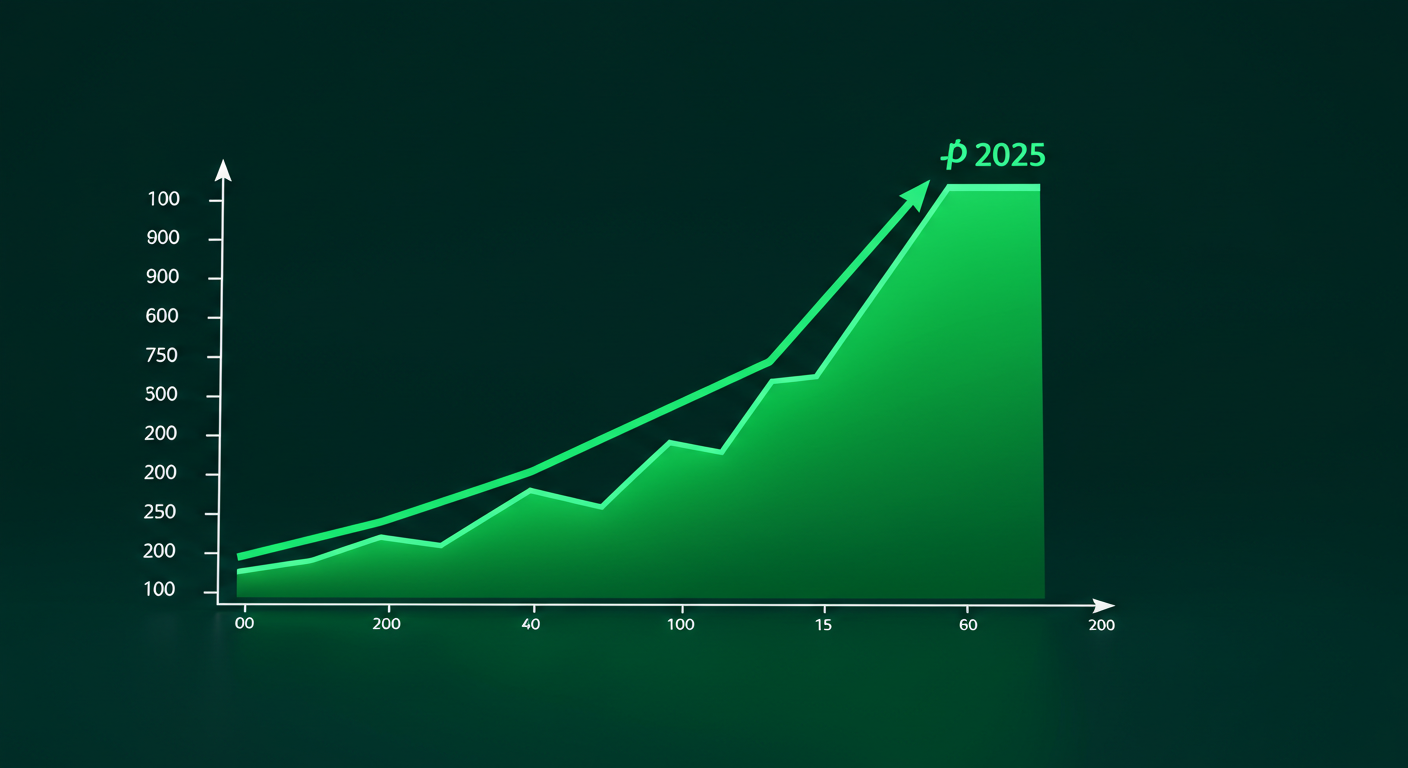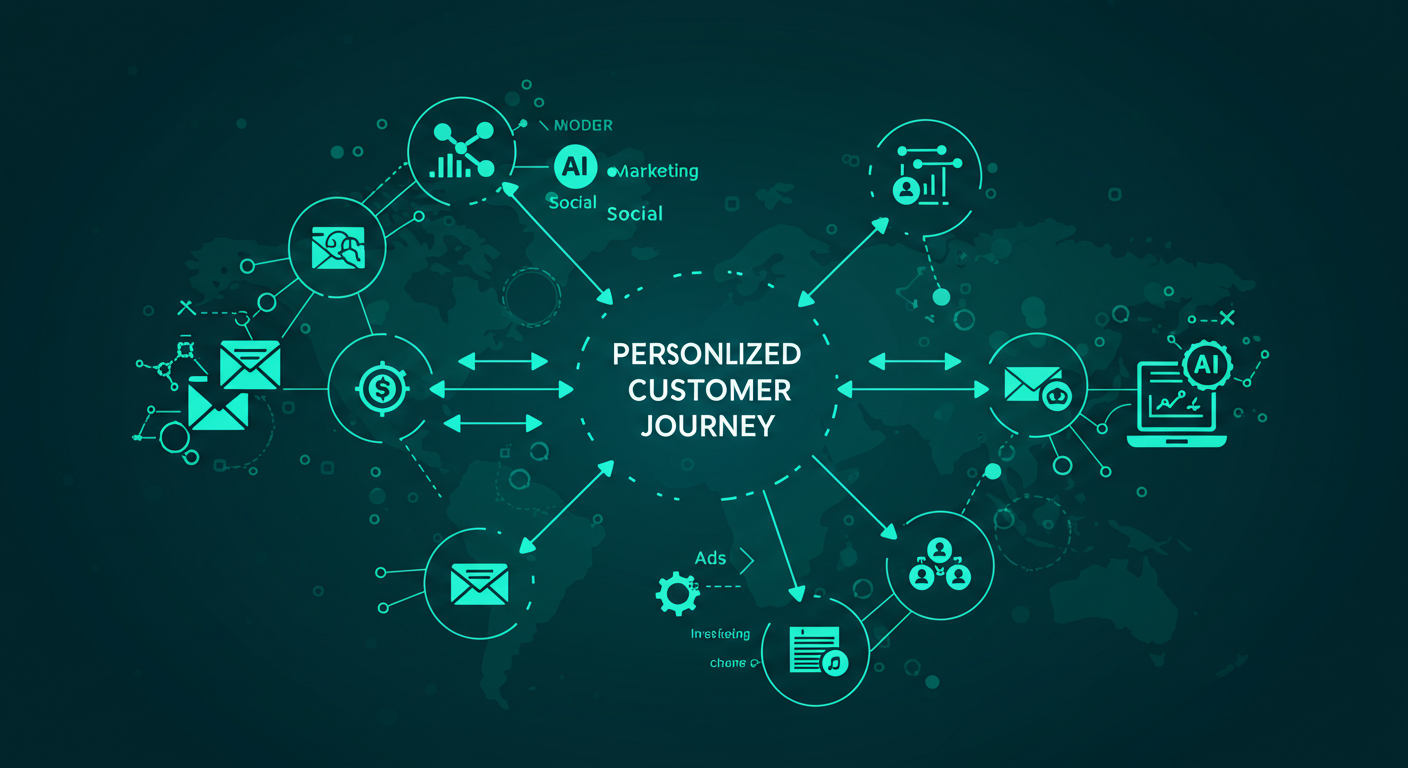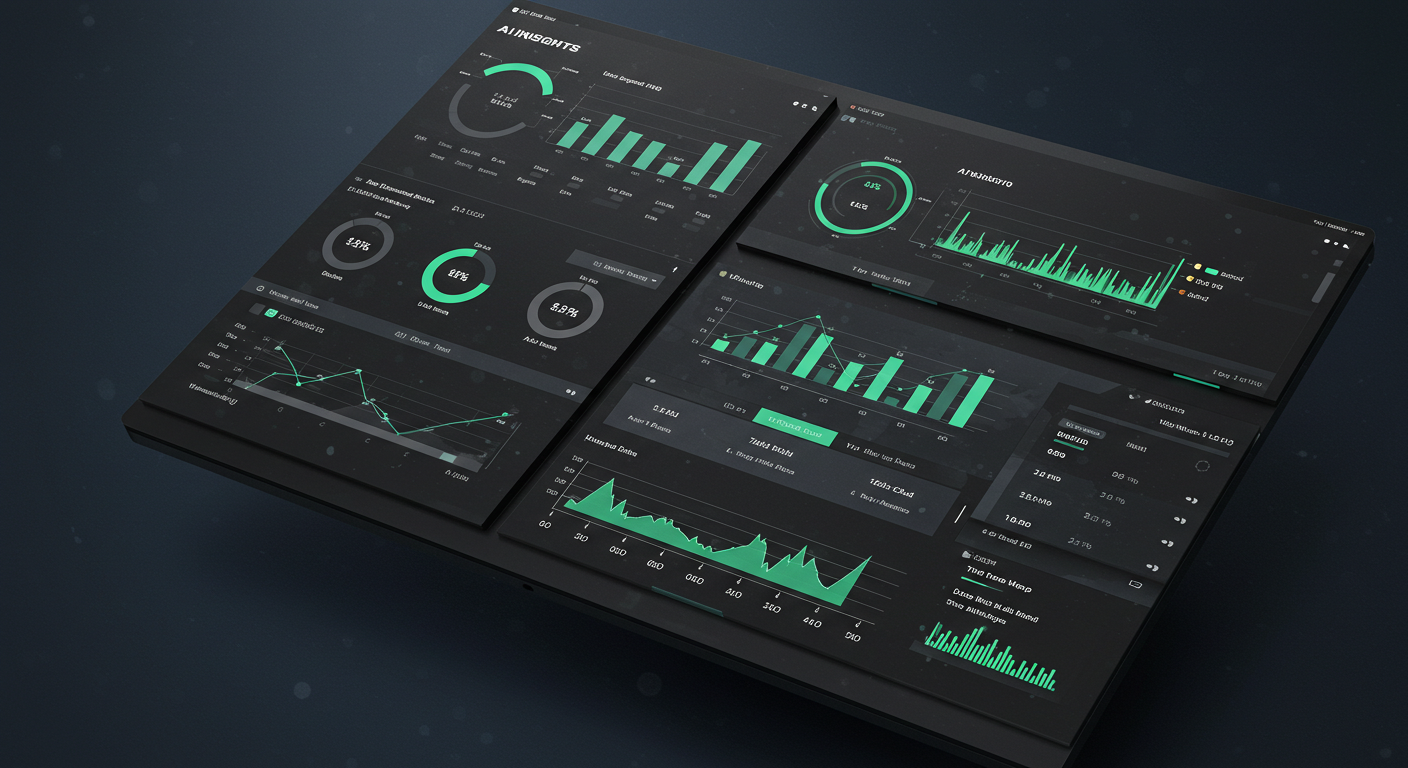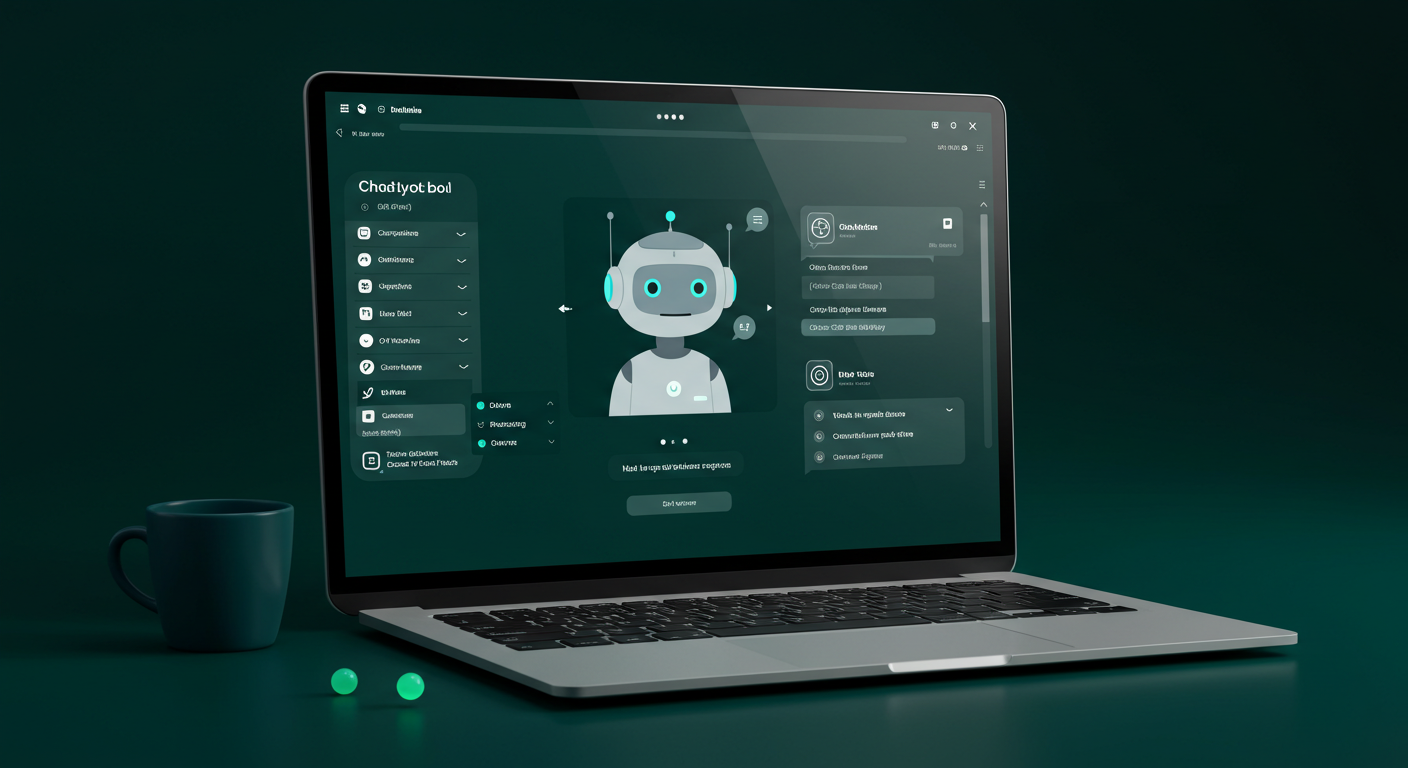How AI Is Changing Digital Marketing in 2025
The Dawn of AI in Digital Marketing: Why 2025 is Critical
Artificial intelligence (AI) is no longer a futuristic concept; it's rapidly transforming the landscape of digital marketing. As we approach 2025, AI is poised to become a fundamental component of successful strategies, moving from experimental tool to essential technology. Businesses that embrace AI now will gain a significant competitive edge in personalized experiences, operational efficiency, and measurable results. This isn't just an evolution; it's a revolution driven by data and intelligent automation.
Purpose of This Guide: Navigating the AI Transformation
This guide provides a practical roadmap for understanding and leveraging AI in digital marketing by 2025. We'll explore how AI is reshaping core marketing functions, key technologies driving this change, and actionable steps you can take to prepare your team and strategy. Our goal is to equip you with the knowledge to navigate this transformation effectively and capitalize on AI's potential.
Understanding the AI Landscape in Digital Marketing
What is AI in Digital Marketing? (Beyond Buzzwords)
At its core, AI in digital marketing refers to using algorithms and machine learning to analyze vast datasets, identify patterns, make predictions, and automate tasks that typically require human intelligence. It goes beyond simple marketing automation by enabling systems to learn from data, adapt, and make intelligent decisions to improve campaign performance and customer interactions.
Key AI Technologies Shaping the Future (Machine Learning, NLP, etc.)
Several AI branches are particularly impactful in marketing:
- Machine Learning (ML): Enables systems to learn from data without explicit programming, driving tasks like predictive analytics, customer segmentation, and content recommendations.
- Natural Language Processing (NLP): Allows computers to understand, interpret, and generate human language, powering chatbots, sentiment analysis, and content creation tools.
- Computer Vision: Enables systems to "see" and interpret images/videos, useful for analyzing ad creatives and visual content.
Why 2025 is a Pivotal Year for AI Adoption (Potential for Statistics)
By 2025, AI tools will be more accessible, powerful, and integrated into existing platforms. Early adopters will have refined their strategies, setting a high bar for competitors. Industry forecasts suggest a significant increase in AI spending in marketing, with [statistic about AI marketing spend growth by 2025] expected.  .
.
How AI is Revolutionizing Core Digital Marketing Areas
AI in Marketing Automation
AI elevates traditional marketing automation from rule-based systems to intelligent, adaptive workflows.
Hyper-Personalization at Scale
AI analyzes individual user behavior and preferences to deliver uniquely tailored messages, offers, and content at scale, far exceeding manual segmentation capabilities.
Optimizing Workflows and Efficiency (Potential for Statistics)
AI can automate repetitive tasks like email scheduling, lead routing, and A/B testing, freeing up marketer time. Companies using AI report [statistic about efficiency gains from AI in marketing automation].
Predictive Lead Scoring and Nurturing
AI accurately predicts which leads are most likely to convert, allowing for prioritized follow-up and dynamically adapting nurturing sequences based on real-time engagement.

AI in Ad Targeting and Optimization
AI ad targeting represents one of the most significant shifts in paid media.
Advanced Audience Segmentation and Insights
AI identifies nuanced audience segments and predicts behavior patterns that human analysis might miss, leading to more precise targeting.
Dynamic Creative Optimization (DCO)
AI assembles ad variations in real-time using different creative elements (headlines, images, CTAs) tailored to the individual viewer, maximizing relevance and performance.
Automated Bid Management and Budget Allocation (Potential for Statistics)
AI algorithms constantly analyze performance data to optimize bids and allocate budgets across platforms and campaigns for the best ROI, often achieving [statistic about improvement in ad ROI with AI].
Fraud Detection and Brand Safety
AI helps detect sophisticated ad fraud patterns and ensures ads appear in brand-safe environments.

AI in Content Creation and Strategy
AI tools are becoming powerful co-pilots for content teams.
Generating Copy, Headlines, and Product Descriptions
AI can generate drafts for various content types, providing a starting point or overcoming writer's block.
Identifying Trending Topics and Content Gaps
AI analyzes vast amounts of data to identify topics resonating with target audiences and areas where your content is lacking compared to competitors.
Personalizing Content Experiences
AI can dynamically alter website content or email copy based on user profiles and past interactions.
Analyzing Content Performance and Predicting Success
AI predicts which content formats or topics are likely to perform best and provides deeper insights into why content succeeds or fails.

AI in Customer Experience and Service
AI enhances interactions throughout the customer journey.
AI-Powered Chatbots and Virtual Assistants
Intelligent chatbots handle common inquiries 24/7, providing instant support and freeing human agents for complex issues. 
Sentiment Analysis for Customer Feedback
AI analyzes customer reviews, social media comments, and support interactions to gauge overall sentiment and identify areas for improvement.
Predicting Customer Needs and Churn
AI identifies customers at risk of churning and predicts future needs, allowing proactive engagement.
AI in Data Analysis and Insights
AI transforms raw data into actionable intelligence.
Uncovering Hidden Patterns and Correlations
AI can process complex datasets to reveal non-obvious relationships between marketing activities and customer behavior.
Predictive Analytics for Future Trends
AI forecasts market shifts, customer demand, and campaign performance, enabling data-driven strategic planning.
Enhanced Attribution Modeling
AI provides more accurate insights into the true impact of different touchpoints on conversions, moving beyond last-click models.
How to Prepare Your Digital Marketing Strategy for AI by 2025
Assessing Your Current Technology Stack and Data Infrastructure
Evaluate if your current tools integrate well with AI platforms and if your data is clean, organized, and accessible for AI training and analysis.
Building an AI-Ready Team: Skills and Training
Future marketers need skills in data literacy, analytical thinking, prompt engineering (communicating with AI), and understanding AI capabilities and limitations. Invest in training or seek new talent.
Setting Clear Goals and KPIs for AI Implementation
Define specific, measurable goals for using AI, whether it's improving AI ad targeting ROI, increasing marketing automation efficiency, or enhancing customer experience. Establish KPIs to track progress.
Developing a Phased AI Adoption Roadmap
Start small with pilot projects addressing specific pain points. Learn from these implementations before scaling AI across the organization. This mitigates risk and builds internal expertise.
Choosing and Implementing AI Tools and Platforms
Identifying Your Specific AI Needs (Automation, Ads, Content, etc.)
Prioritize areas where AI can deliver the most significant impact based on your goals and current challenges (e.g., improving AI ad targeting performance or streamlining marketing automation).
Key Considerations When Selecting AI Vendors and Tools
Look for tools that offer robust features, integrate with your existing stack, have strong data privacy and security measures, provide good support, and demonstrate a clear ROI potential.
Integrating AI Tools with Your Existing Systems
Seamless data flow between your CRM, marketing automation platform, analytics tools, and AI solutions is crucial for maximizing AI's effectiveness.
Measuring the ROI of Your AI Investments (Potential for Case Studies/Statistics)
Track key metrics before and after AI implementation. Look for improvements in conversion rates, efficiency, cost savings (e.g., reduced ad spend while maintaining results), and customer lifetime value. Case studies show companies achieving [statistic about ROI from AI marketing initiatives].
Challenges and Ethical Considerations in AI Adoption
Overcoming Data Quality and Integration Hurdles
AI is only as good as the data it's trained on. Ensuring data accuracy, completeness, and seamless integration across systems is a primary challenge.
Addressing Algorithmic Bias and Fairness
Biased data can lead to discriminatory outcomes in AI-driven decisions (e.g., targeting). Marketers must be aware of and mitigate potential biases.
Ensuring Data Privacy and Security (Compliance with Regulations)
Handling customer data with AI requires strict adherence to regulations like GDPR and CCPA. Robust security measures are essential.
Managing the Human Element: AI as an Assistant, Not a Replacement
AI excels at data analysis and automation, but human creativity, strategic thinking, emotional intelligence, and ethical judgment remain irreplaceable. AI should augment, not replace, marketers.
"AI is a powerful tool in the marketer's arsenal, freeing them to focus on strategy and creativity rather than manual tasks."
Summary: Key Takeaways for Leveraging AI by 2025
- AI is becoming essential, not optional, in digital marketing by 2025.
- Key areas impacted include marketing automation, AI ad targeting, content, customer experience, and data analysis.
- Core AI technologies like ML and NLP are driving these changes.
- Preparation involves assessing tech, training teams, setting goals, and planning adoption.
- Careful tool selection, integration, and ROI measurement are critical for success.
- Challenges like data quality, bias, privacy, and the human-AI balance must be addressed proactively.
Conclusion
Recap: The Transformative Power of AI in Digital Marketing
By 2025, AI will have fundamentally reshaped how we practice digital marketing, enabling unprecedented levels of personalization, efficiency, and data-driven decision-making. Leveraging AI in digital marketing is no longer a competitive advantage but a necessity for staying relevant and effective.
Looking Ahead: The Future Beyond 2025
AI development will continue to accelerate. Expect even more sophisticated capabilities in predictive analytics, personalized creative generation, and seamless integration across all marketing touchpoints.
Final Call to Action: Start Your AI Journey Today
Don't wait until 2025. Begin exploring AI's potential now. Assess your needs, educate your team, and implement pilot projects. Embracing AI is key to future-proofing your digital marketing strategy.



